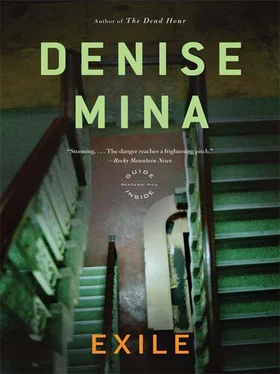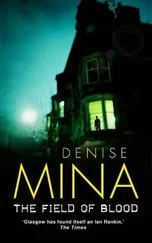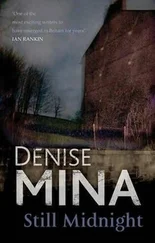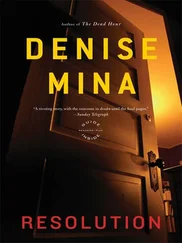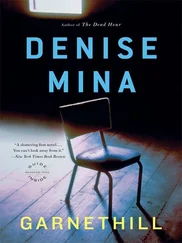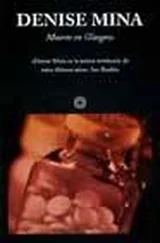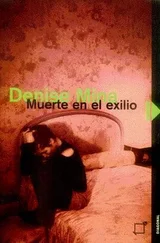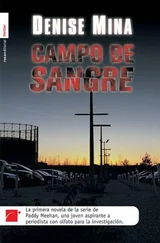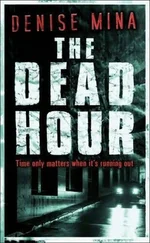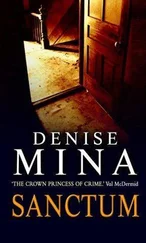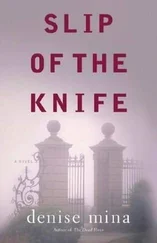Moe patted a hand to her chest. "Hah, angina," she said. "Terrible, hah, affliction."
"It is," said Maureen.
"Hah. You said you know Jimmy Harris's family?"
'Aye. I know his cousin and his auntie."
Quite suddenly, Moe grabbed the back of the armchair and clutched her left shoulder, struggling for breath. Maureen watched her impassively. Moe thought she was from the social. If Moe was prepared to put on a disability display for a total stranger she must be screwing the brew for a bundle. Angina was worth eighty or ninety quid a week. Plus mobility if she claimed she couldn't walk, hence the fused hips. Moe's attack passed and she looked at Maureen for sympathy, patting her chest. Maureen wanted to slap her leg and challenge her to a hula-hoop competition. "You sit down, let me get the tea," she said.
Moe dropped into the armchair, landing on top of the sticky Eazigrip.
"Milk and sugar?" asked Maureen.
"Uh-huh." Moe watched the tea, looking worried.
Maureen guessed at two sugars, stirred and held the cup and saucer out for her. Moe grabbed hold of the chair arms and pulled herself forward to take the cup. Behind her the sticky Eazigrip toppled against the armrest, its tacky claw touching the arm. Moe took the cup and sat back again, pressing the dirt into the chair.
"I'm awful sorry about your sister, Mrs. Akitza."
Moe nodded somberly. "Yes, hah, call me Moe," she said. "Does Jimmy know you're here?"
"Oh, aye. I wanted to ask ye about Ann."
"Yes." Moe sniffed with a dry nose and looked at her lap. "They took me down to Horseferry Road to identify her."
"That must have been terrible," said Maureen, thinking of Douglas.
Moe leaned forward, reaching for a Garibaldi biscuit. Her outstretched fingers missed the plate by three feet. Maureen watched her for a moment, wondering about her, before reaching forward and holding up the plate of biscuits. Moe took one and thanked her, smiling reproachfully, resentful of the pause.
"Did Ann come and see ye when she came to London?"
Moe nodded. "Yes," she said, taking a bite. "Always."
"Did she come this last time?"
"Came to borrow money. I haven't any money. I can't work because of my condition."
"When did Ann come?"
"New Year's Eve, hah, the Friday."
"And that was all she said, could she have money?"
"Yes, she was very scared, hah," Moe said solemnly, talking slowly "Someone was after her. She was running for her life."
Maureen nodded back.
"Well, she's dead now," said Moe, and frowned as if her sister had missed a bus. She sipped her tea.
"Jimmy said she was in some state," said Maureen.
Moe shivered. "Oh, aye, terrible, hah."
"He said she was shot."
"No." Moe sounded certain and pointed to the back of her head. "Fractured skull. Hah, her feet was all burned, her hands too."
Maureen watched her, remembering the morning when she had found Douglas dead in her living room. It had been six months but Maureen still shuddered at the image. Moe had seen her sister less than a week ago. She was trying quite hard but she didn't seem very upset.
"Oh, he told me she was shot in the head."
"Hah, no. The river made a mess of her face but she wasn't shot. I've never seen anything like it, hah. They'd cut her legs." She drew little lines around the back of her knees. "Still had her bracelet on. Our mother gave that to her, as an heirloom. Ann was named for her, you see. Been through all that and, hah, still had it on… She was never without it. Wore it everywhere."
She gestured around her wrist, running her fingers slowly over the flat bone. Maureen nodded again, but she had a pretty firm grasp of the whole bracelet concept already.
"Is this the gold one?"
"Hah."
Outside the dirty window an ambulance me-mawed down the hill. Moe sipped her tea, looking at Maureen. She didn't speak.
"Ye know Ann was in a shelter for battered women before she disappeared?"
"Hah."
"The police are going to think Jimmy had something to do with her murder-"
"Nice, hah, man, Jimmy," she interrupted.
"Aye," said Maureen. "He is a nice man. Do ye think he hit Ann?"
Moe looked at her Garibaldi and shrugged. "Hah, I don't know. Ann could be difficult, hah?"
"Because she drank."
Moe swallowed hard and looked into the shadows. "It was the drink that killed Ann, really, hah?"
Maureen nodded.
"The company, hah, she kept." Moe looked sad. "She was a good girl. She wouldn't have been in that company otherwise."
"The police phoned Glasgow to tell the home for battered women that Ann was dead and they asked for someone very specifically. Would you know how they got that name?"
"Leslie Findlay at the Place of Safety Shelters. Ann told me when she came here and I told them."
"Why did she tell ye that name, do ye think?"
"Hah, in case anything happened, I suppose."
"It was lucky that you remembered her name so well," said Maureen carefully, "because otherwise the police might never have known Ann had been in a shelter."
"Yes, it was. Lucky."
Maureen pulled the Polaroid out of her pocket and handed it to Moe. "Do you recognize this man?"
Moe looked at the picture closely. "No."
Maureen reached over to take the picture back but Moe was reluctant to give it to her. "Can I keep it?" she said.
"Why would you want to keep it if you don't know the man?"
"It's got my nephew in it. I might never see Ann's children again. I can't hardly go out of the house. I don't keep well."
"I'm afraid I'll need to keep it." Maureen had to tug the picture to get it back off her. "I'll get Jimmy to send you a set of school pictures. Have you got her child-benefit book, Moe?"
Moe was so startled she nearly kicked the tray over. "No, I haven't, hah, hah, hah," she panted, her eyes darting around the floor.
Maureen leaned forward and patted her arm. "Hey, calm down, I'm sorry, I'm just asking."
"But why are ye asking? I wouldn't do that, it's against the law." The sunlight spilled over the edge of the windowsill and caught Moe's forehead. Specks of sweat were soaking up the pink face powder.
"I'm upsetting you," said Maureen. "I'm sorry. I can see you don't keep well. I hope you've good friends and neighbors down here."
Moe pursed her lips in disgust. "They're animals here," she said. "Bloody animals. Nothing's safe. A woman was mugged at lunch-time the other day. Broad daylight. They're animals."
"Oh dear. Well, you've got your man." Maureen looked around the room. There were no signs of a man at all, no odd shoes left lying around, no jackets, no special armchair positioned in front of the television with the remote balanced on the arm.
"Hah," said Moe smugly. "Hah, we've got each other."
Maureen didn't think she could listen to another incompetent lie without calling her on it. She gave Moe a copy of her pager number and stood up to leave.
"It's nice tae hear your accent," said Moe, burring on the Rs with wide-open vowels, showing herself. "You're Glaswegian."
Maureen smiled. "Aye."
"I married a Londoner. He can't live in Scotland – we couldn't even go home to visit for a long time. He's black, ye see."
"Aye," said Maureen, thinking of the bald man on the bus and feeling the shame of her people. "I'm sorry about that. Have ye been married long?"
"Fourteen years. They're terrible racists, the Scots."
"Well," said Maureen, "I'm sure you're right."
Moe hoisted herself out of the armchair and led her through the hall to the front door.
"Hah. Ann led a terrible life," she said heavily.
Maureen patted her arm and thanked her for her time. She walked down the first flight of stairs, hearing the regular pant, pant of Moe behind her. Moe had been married to the same man for fourteen years and rarely left the house, but she still took good care of her appearance. It was as likely as peace in Africa.
Читать дальше
